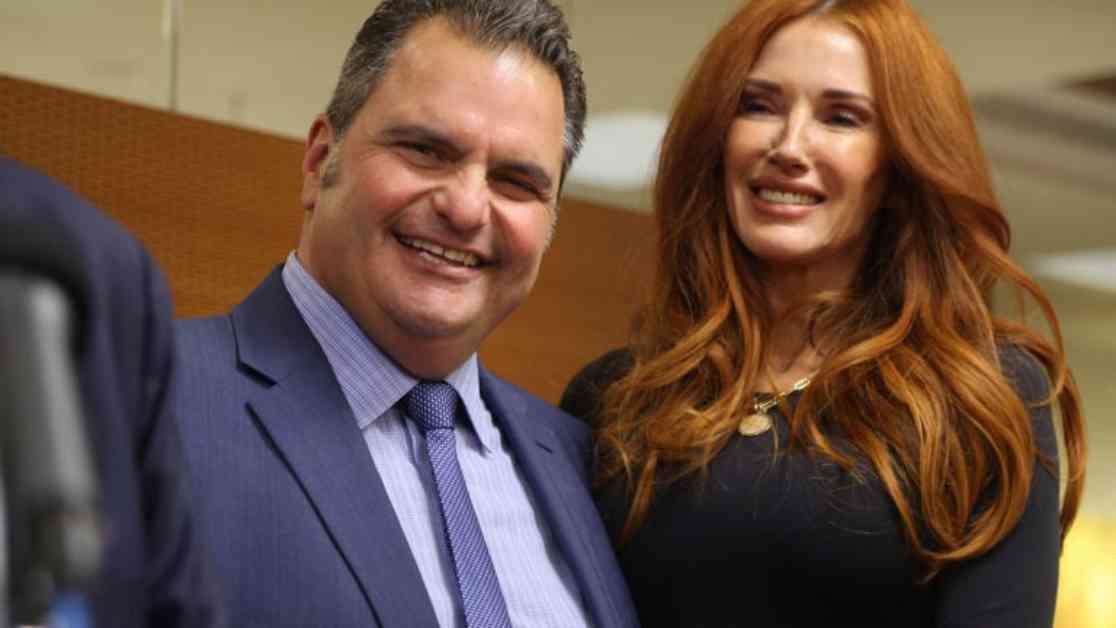Everett Mayor’s $180,000 Overpayment Exposed by Watchdog
In a recent investigation conducted by the Office of Inspector General, it was discovered that Mayor Carlo DeMaria of Everett had been overpaid by $180,000 in bonuses over a five-year period. The report revealed that the mayor should have only received $40,000 in longevity payments between 2016 and 2021. Instead, he allegedly received a total of $220,000, sparking controversy and calls for accountability.
Inspector General Jeffrey Shapiro, in a statement addressing the issue, emphasized the gravity of the situation, stating, “I am not aware of any elected official in the Commonwealth who receives a $40,000 annual bonus.” The watchdog organization urged the City Council to take action to recover the funds and return them to the city’s treasury.
The investigation was prompted by a hotline tip received in 2022, which led to a thorough examination of DeMaria’s bonuses. The findings, outlined in a letter to Everett City Council President Stephanie Martins, exposed a pattern of unjust enrichment orchestrated by the mayor. The report highlighted how DeMaria’s administration had attempted to conceal the longevity payments from both the council and the public.
Uncovering DeMaria’s Deceptive Practices
The controversy surrounding DeMaria’s overpayment stemmed from an ordinance dating back to 2016, which initially proposed a $10,000 bonus for the mayor after each completed full term. However, the language of the ordinance was later altered to “for each completed term,” paving the way for the inflated payments. The watchdog organization pointed out that these payments were obscured within the city’s human resources budget, evading routine scrutiny by council members and the public.
Furthermore, the report implicated the city’s chief financial officer for failing to properly document DeMaria’s erroneous bonuses, adding another layer of complexity to the situation. It was revealed that the mayor had proposed the bonus after discovering disparities in the earnings of other city employees, potentially violating state ethics laws in the process.
Witness accounts cited in the report indicated that DeMaria had received a total of $30,000 for the previous three terms he had served, followed by annual payments of $40,000 from 2017 to 2021. The City Council eventually reduced DeMaria’s longevity payments to $1,700 in 2022, sparking a debate over the validity of the mayor’s entitlement to the higher amounts.
Call for Accountability and Transparency
The OIG’s letter to the City Council stressed the importance of recovering the $180,000 overpayment, auditing payments to DeMaria, and discontinuing longevity payments for elected officials. Additionally, the council was urged to seek guidance from the State Ethics Commission to determine if any conflict of interest laws had been violated.
The report underscored the need for enhanced controls within the city’s finance department, emphasizing the importance of separating the duties of the CFO and auditor to prevent future discrepancies. Specialized training for city employees and council members was also recommended to ensure greater accountability and transparency in financial matters.
In light of these revelations, the OIG’s investigation shed light on the failures of Mayor DeMaria’s administration to uphold their public duties, instead prioritizing personal financial gain at the expense of the city. The report served as a stark reminder that longevity payments should not be exploited as a means to inflate the salaries of elected officials, urging greater oversight and accountability in local governance.
In a surprising turn of events, DeMaria recently won a defamation lawsuit against The Everett Leader Herald, resulting in a $1.1 million settlement. The publication subsequently ceased operations, marking a tumultuous period for the mayor and the city of Everett.





